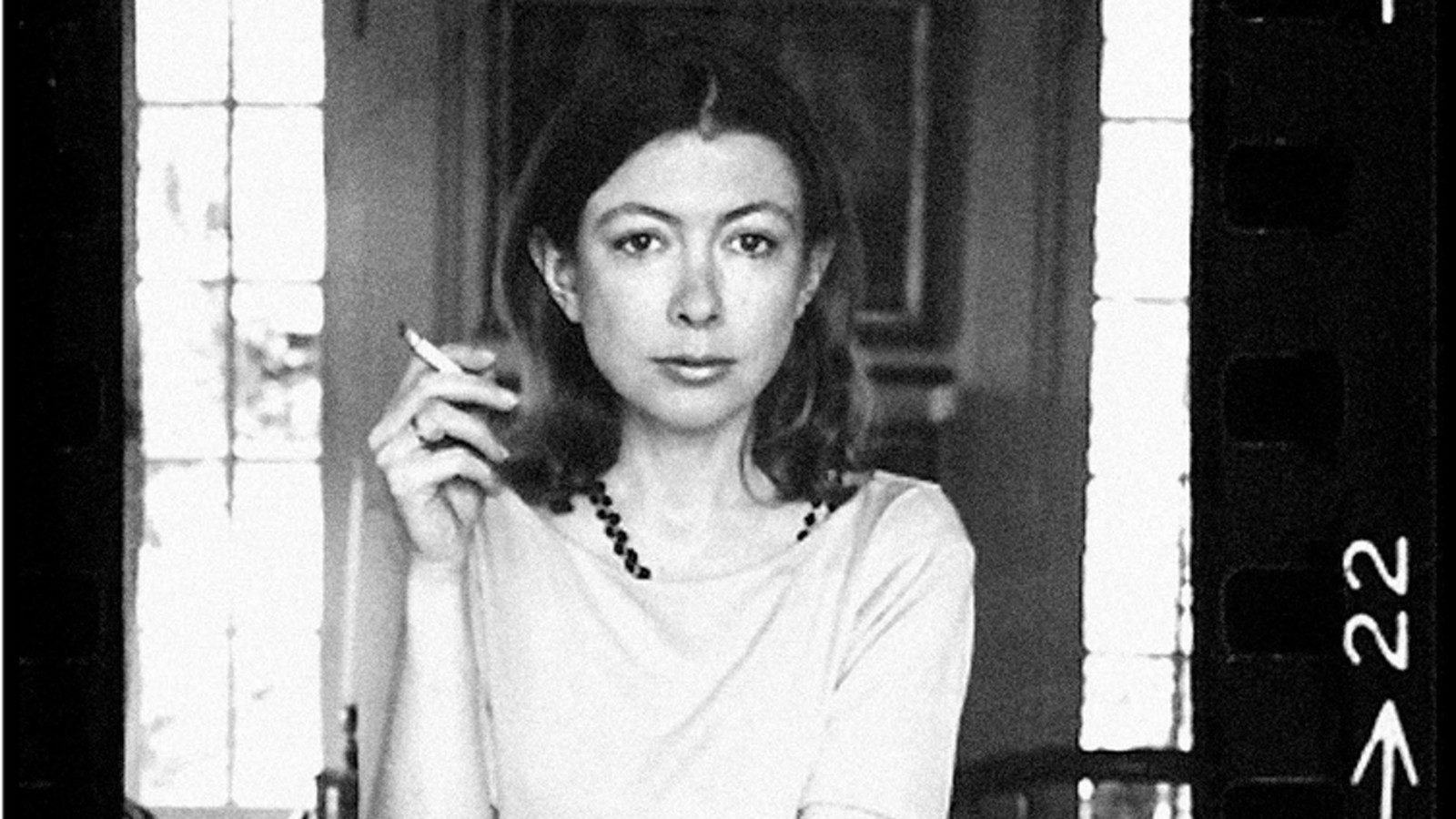by Jason Adams

"Life changes fast. Life changes in the instant. You sit down to dinner and life as you know it ends."
The instant. Not "an" instant, which is how most of us would sort that sentence. When writing of her husband's death in her book The Year of Magical Thinking Joan Didion said "the" instant, and in Joan Didion's wake nothing else seems right. Because it is not just any instant. It's the one that changed your life. At most, depending on how long we live, we might get a couple. Joan Didion, at 82, has had her own intimate yet earth-quaking share. And Joan Didion, as ever, is here to distill them down into apple crisp sentence form for us.
Joan Didion: The Center Will Not Hold, the new documentary on the author, was directed by Didion's nephew, the actor Griffin Dunne, and he makes similar Didion-esque economy of Joan's handful of instants...
I hear a turn of the phrase from Vertigo's doomed heroine, "Here I was born, and there they died. It was only a moment for you; you took no notice." That wasn't quite true there in that fiction and it's not true here either - through art, her sharp turns of phrase and pointed reference, we noticed.
So here Joan Didion was born, and here they - her husband, her daughter - died. Griffin Dunne spells out the former dutifully, and we watch as Joan's world builds itself up - happy home, happy marriage, booming career of great privilege and surprising scope. And the ghosts of the latter chill beside us, waiting their turn.
When they come home, it's a whammy. I remembered sitting in a Broadway theater with Vanessa Redgrave speaking Joan's words a split second before Vanessa Redgrave showed up in the documentary to do just that - and so it goes; Joan Didion knows where our minds are going and she'll beat us there by a hair every time.
Joan Didion: The Center Will Not Hold is solid and perfectly serviceable as a straightforward documentary but it feels like an important document if only because it does capture some of that truth. That importance. That twisting of the entirety of a human experience into a disarmingly compact package. Didion took the dark gray pall of Grief itself, epic in scope, eternal, and in her small hands she knotted it like a scarf and we all passed it among us like a prayer. A common prayer, if you will. She took personal communion of her own pain, and together, one as many, we grieved.